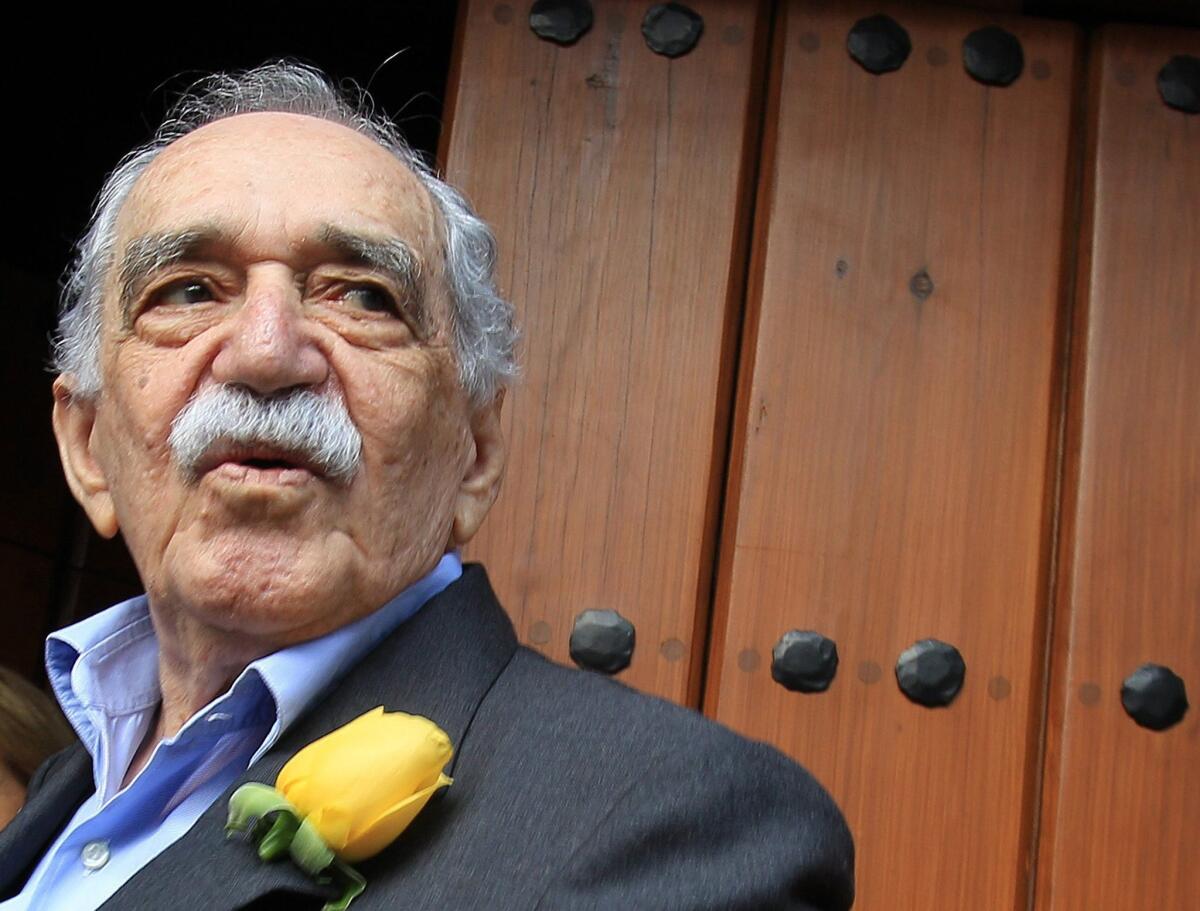Gabriel Garcia Marquez, 1927-2014

No literary experience is rarer than reading a book that changes the way you see the world. “War and Peace” will change the way you look at the heroism and foibles of all men and women, from the ordinary to the exceptional. Certain novels of William Faulkner (“Light in August,” “Absalom, Absalom!”) succeed in elevating everyday life to the level of biblical parable.
But the effect of “One Hundred Years of Solitude,” Gabriel Garcia Marquez’s masterpiece, is unique. Nothing I have ever read conveys as it does the magic underlying the most quotidian events and gives even the most extraordinary occurrences an air of mystical inevitability.
Vladimir Nabokov, in his lectures on Russian literature, spoke of Tolstoy’s gift of communicating a sense that his novels were unfolding in real time -- “the only writer I know of whose watch keeps time with the numberless watches of his readers.” Tolstoy’s characters, he said, “seem to move with the same swing as the people passing under our window while we sit reading his book.”
“One Hundred Years of Solitude” communicates a similar impression of reading a story, being read that story, and living that story all at once. As one reads “One Hundred Years of Solitude,” one is seized by amazement at its narrative drive and its richness of incident and event, and at the same moment enveloped by the very act of reading.
To this day I can remember the moment when I encountered the very first sentence of “One Hundred Years of Solitude” (in Gregory Rabassa’s masterly translation): “Many years later, as he faced the firing squad, Colonel Aureliano Buendia was to remember that distant afternoon when his father took him to discover ice.” I was gripped from those words to the very last page, and finished the book in tears and astonishment.
A friend told me one day recently, as we were contemplating the last illness and impending death of Gabriel Garcia Marquez, that he had read some of the author’s subsequent books -- “The Autumn of the Patriarch,” “Love in the Time of Cholera” -- but not “One Hundred Years of Solitude.” I could only repeat to him the words of the literature professor who first introduced me to this book: “I envy you the opportunity of reading it for the first time.”
“One Hundred Years of Solitude” invested the history of Latin America, the relationship between the countries and commerce of the Northern Hemisphere and the people of the Southern, and the struggles of ordinary humans with an extraordinary resonance. With this book and his many others, Gabriel Garcia Marquez left humanity a priceless gift.







